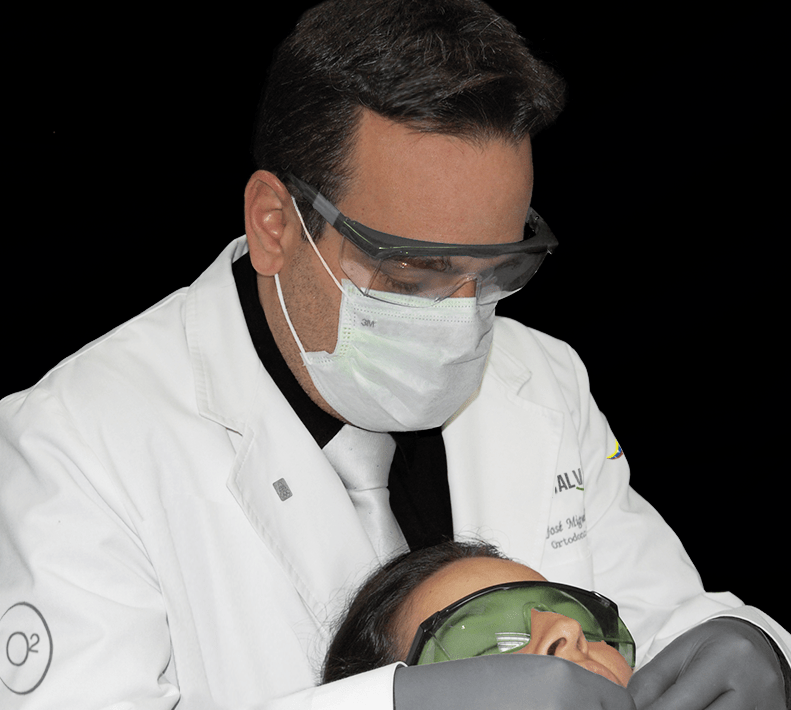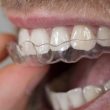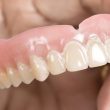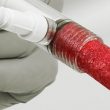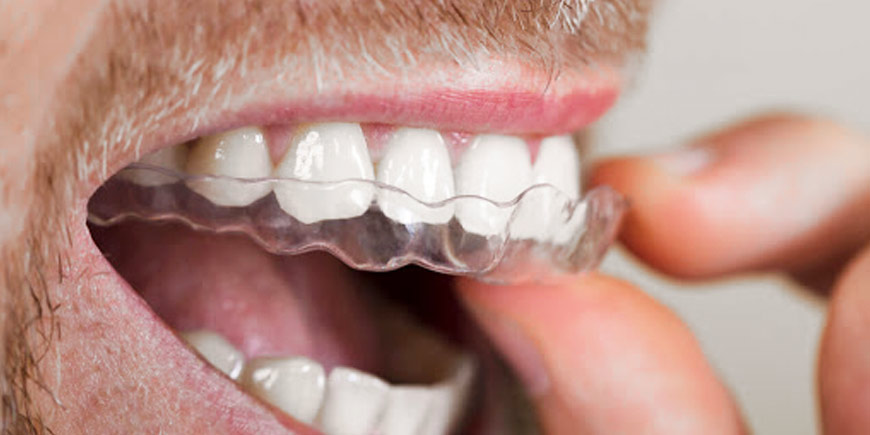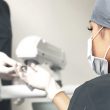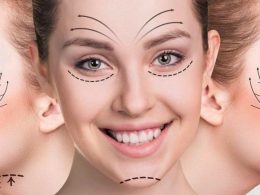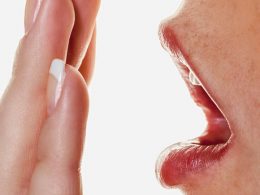Table of Contents
When it comes to restoring your smile, porcelain, whether placed on metal alloy frameworks or copings, or on 100% metal-free crowns and veneers; it is extremely versatile, as it helps correct almost all cosmetic defects and also provides resistance to teeth that have been affected by tooth decay or trauma.
One of the greatest benefits of ceramic restorations, with proper care of course, is their great durability, estimated at many years.
The key is knowing what steps to take to avoid damage. Whether you have one or more structures of this type, following these eight simple tips can help ensure that your restorations will provide you with many years of service.
1- Avoid Excessively Hard or Sticky Foods
Fixed bridges, crowns and veneers are strong and durable, but like your natural teeth, they are highly susceptible to functional abuse. Chewing on ice or hard candy can chip, crack and fracture the porcelain, meaning the restoration will need to be replaced sooner than expected. Broken porcelain cannot be repaired!
Highly sticky foods and chewing gum can also cause problems, either by weakening or loosening restorations, or by causing small residue to become trapped within their surfaces, degrading and causing irreversible pigmentation. It is best to avoid these foods whenever you can.
Remember that the dental porcelain used to make these restorations is highly resistant to staining. That resistance also makes it impossible to whiten like your natural teeth. During the process of designing your smile, you may wish to undergo professional whitening treatment, to ensure that your ceramic structures look their best and harmonize with the color of your natural teeth. Later, if you decide to bleach your teeth again in the future, the well-preserved ceramic restorations; will still project their original chromatic properties.
2- Brush and Floss to Keep the Abutments Healthy
Your restorations may be “artificial”, but the abutment teeth or dental implants underneath, require routine oral care to remain healthy and stable. Although the restoration extends over the entire surface of the abutment, it is necessary to brush it carefully to periodically remove dental plaque and prevent periodontal diseases.
You will do nothing to keep the restorations intact, if you do not take care of your abutments. If teeth or implants become loose due to periodontal disease, it will probably be the useful end of rehabilitation. The ideal is to brush after each meal, or at least, 3 times a day.
You should first use a conventional brush to clean most surfaces, and then an interdental brush to penetrate the interproximal spaces (between tooth and tooth) that allow it access.
Flossing is also very important, as germs and food particles can still be trapped or retained between the ceramic structure and the gum or neighbor tooth.
When you have a temporary protection (before your permanent restoration is put in place), you will be told to take care not to dislodge it when flossing. But your permanent bridge, crown or veneer adheres with a stronger dental cement, so you can floss around it the same way you floss around your other teeth.
The ideal is to floss after each meal, or at least, twice a day: afternoon and evening. Similarly, it is essential to select a special floss for prosthetics or use a dental threader.
3- Use a Waterpik Type Water Flosser Regularly
The use of a Waterpik can be especially useful for accessing hard-to-reach areas of the mouth, widely spaced teeth, restorations and dental implants; and even, periodontal pockets that can be caused by gum disease. It can also help keep your breath fresher for longer, which is a great added bonus.
The Waterpiks are easy to use. Although they require a bit of practice and skill, they are usually comfortable for the vast majority of people. To be as effective as possible, new users should remember to place the tip in their mouth before turning the unit on and operate it slowly, sliding the tip gently along the gum margin.
For best results, it is recommended to start with the back teeth and then work towards the front teeth. Continue until you have cleaned the inside and outside of all upper and lower teeth. This can help you get a thorough and proper cleaning of your restorations and your entire mouth. We recommend using it at least once a day, preferably at night.
4- Kick Your Bad Habits
Do you bite your nails? Do you chew pencils, ice, or other hard objects? Do you grind your teeth when stressed? Do you use your teeth as “tools” to open bottles? Stop! These habits can not only destroy your crowns, but they can also chip or fracture your natural teeth. Furthermore, such hard objects can also injure your gums.
If you have tried to break these habits before without success, now is the time to redouble your efforts. Not only will your teeth and gums thank you, but also the investment of effort and money you made to get your new smile.
5- Use a Night Guard
It is one thing to try to curb the habit of grinding and clenching your teeth (bruxism) when you are awake and conscious, and another to do it during sleep. The big problem with this is that many people grind and clench their teeth in their sleep, which means they probably do not even realize it.
Grinding and clenching may not seem like a really serious problem, but over time, the teeth can be severely affected. A normal bite exerts about 200 pounds of pressure per square inch, and during bruxism, that pressure can increase significantly; which undoubtedly puts ceramic restorations at risk of collapse, mainly due to fatigue and fracture phenomena.
Because bruxism can appear unexpectedly and suddenly, especially in periods of great emotional stress, at DENTAL VIP we always indicate, design and install a personalized night protector to avoid habit and protect the ceramic restorations of all our patients while they sleep. It is a consolidated and mandatory routine!
6- Stop Smoking and Keep Yourself in Good General Health Status
The durability of any type of fixed prosthesis will depend on its structural integrity and the health of its abutments. Regardless of whether the restorations are supported by natural teeth or dental implants, both are anchored and retained by the supporting periodontal tissues, mainly by the bone tissue and the gum. If they become infected, inflamed and the alveolar bone is reabsorbed; abutments can loosen and ceramic teeth can be lost, no matter how beautiful and well-made they are.
Poor hygiene, diabetes and smoking are the main risk factors for the development of periodontal disease, the increase in its severity and the speed of its progression. Periodontal disease can affect both natural teeth (periodontitis) and dental implants (peri-implantitis).
The number one systemic condition that increases susceptibility to periodontal disease is diabetes. Most well-controlled studies show a higher prevalence and severity of periodontal disease in diabetics than in non-diabetics, characterized by local irritation, greater attachment loss, greater loss of alveolar bone, increased bleeding on probing and increased mobility of teeth and implants; which often leads to their loss. That is why it is so important to keep it under control from a dental point of view. Other systemic conditions to consider are immune, blood, respiratory, and gastrointestinal diseases, such as gastroesophageal reflux disease.
For its part, smoking is an independent risk factor for the onset, extension and progression of periodontal disease. In addition, smoking can reduce the chances of success of the treatment, since it exerts an immunosuppressive effect on the body that leads to the destruction of the periodontal support tissues.
Take advantage of your oral rehabilitation process to quit smoking!
7- Avoid Trauma and Oral Injuries
With hits, teeth and restorations can chip, crack, break into pieces and come off completely. This can occur as a result of an occasional accident or trauma.
Sports guards, protective splints or mouth guards, are different names for the same thing: a device that is placed on the teeth and protects them from blows to the face and head. Mouth guards are an important piece of sports equipment for anyone who participates in a sport that involves falls, body contact, or high speeds. This includes soccer, basketball, baseball, hockey, skateboarding, gymnastics, mountain biking, motorcycling, and any other activity that can lead to a maxillofacial injury.
8- Visit Your Dentist Two or Three Times a Year
Getting routine checkups and cleanings every four to six months (as directed by your Dentist), is important to make sure the gums surrounding the restorations remain healthy, and also to make minor adjustments to your bite and your night splint.
In addition, regular visits allow professionals to check your ceramic teeth to ensure that they retain their fit and marginal seal, do not exhibit uneven wear, and are in functional balance.
“The Longevity or Duration in Years of Any Oral Rehabilitation, Will Depend on Many Factors, Being the Collaboration of the Patient One of the Most Important”.
DENTAL TIP
Save Thousands by Getting Dental Work in Venezuela!
On average, dental work in Venezuela is about a third the price of what you are used to paying at home, without a drop in the quality of care. All the process takes is just a little research and a few more logistics. In the “Dental Tourism” category of this same blog we describe all the considerations necessary to get dental care done in Venezuela.
The first thing you want to do is get a quote for the dental work you need done by our team. Most of the time, simply sending a few photos and X-rays to us will do just fine. The online consultation will provide a strong idea of what will need to be done, and will be able to provide you with a pretty close cost estimate for the dental procedures.
Through our WhatsApp or Email you can ask all the necessary questions about the proposed treatment and its details. DENTAL VIP has specially trained personnel for this function.
Once the quote is approved, you must indicate the date of your trip to corroborate the treatment viability in the selected period, ensure your accommodation and proceed with the purchase of air tickets.
Congrats! Now you are on your way to saving thousands by getting dental work in Venezuela.
